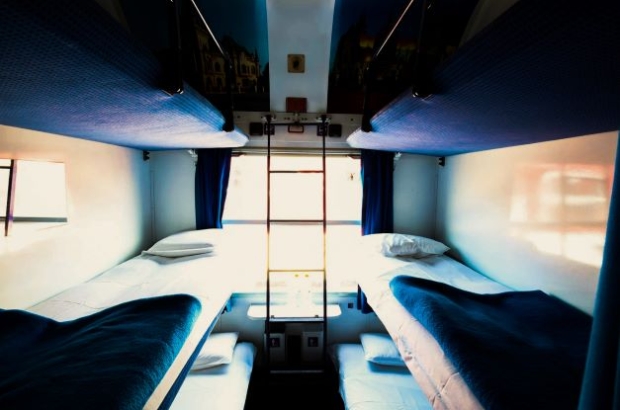- Daily & Weekly newsletters
- Buy & download The Bulletin
- Comment on our articles
First night train to Berlin will set off this Friday
The first overnight train to Berlin will depart Brussels this week following a successful test run of the European Sleeper.
The debut trip will begin on Friday at 19.22, departing from Brussels-Midi and arriving in the German capital at about 9.00 the following day.
“There's nothing nicer than reading a book on the train in the evening, only to wake up the morning after in a different country,” Alexander Gomme of Back on Track, an organisation campaigning for more night trains in Europe, told Bruzz.
Back on Track had been awaiting the results of the test run, which was successful apart from a small delay.
The overnight train will offer a variety of seating options, from a sleeping car to a sitting car to one with reclining seats.
“The first option can almost be compared to a hotel room, because you have your own bathroom and desk, for example,” Gomme said.
“By the way, the sleeping cars are already almost fully booked until September.”
The success of the overnight train was also confirmed by Elmer van Buuren, co-chief exeecutive of operator European Sleeper.
“Bookings are good, especially for night journeys in summer,” van Buuren said.
While sleeping cars for the first journey on Friday are sold out, other seats are still available at a lower cost: a seat in a sitting car is about €70 and a reclining seat is €100. Women can choose to sleep in women-only cars.
From 2024, the Brussels-Berlin train will continue through to the Czech capital Prague as its final destination, which Gomme called “a step in the right direction”.
Still, Gomme sees opportunities for improvement, including the quality of train cars.
“New train operators like European Sleeper only have older carriages available today, because new carriages are very big investments,” Gomme added.
Organisation and coordination in general could also sometimes be better: “Those who want to travel internationally sometimes have to use two, three websites to book the route. Moreover, if one of the trains is delayed or cancelled, you don't get a refund for the other journeys.”
Only when those barriers are removed does Gomme see the train as an attractive alternative to air travel.



















